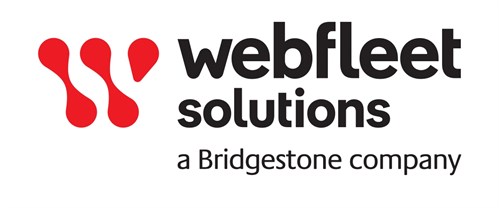- Tyres: The path of least resistance
- ETRUX receives Ford Pro Convertor status
- The Logistics Organisation adds to van fleet with Vanaways
- Northgate launches micromobility service
- Progress being made on shared EV charging, AFP reports
- Medisort electrifying van fleet with Bedeo
- ADVERTISEMENT FEATURE: Taking a shortcut to reduce commercial vehicle emissions
- The What Van? Road Test: Ford Ranger Raptor
- Speakers announced for Commercial Vehicle Show
- Check new vehicle registration details are correct, AFP tells fleets
TELEMATICS: An original approach
Date: Friday, March 6, 2020 | Author: Sean Keywood

Iveco’s Daily launched last year with the MyDaily portal
(Continued from page 2) For Singh, at this stage manufacturer systems actually provide an opportunity for SmartWitness, since its cameras are compatible with all the manufacturer systems and can therefore cater for fleets who adopt them but want to add cameras.
He adds: “Tracking systems without video won’t provide improvement in safety records, better FNOL (First Notice of Loss) or reduction in exposure to bogus claims, so this has actually been a positive move for SmartWitness.”
When asked if SmartWitness would be involved with OEMs on a white label basis, Singh says: “Watch this space. It’s something we have been in talks with in the past and it would make sense for the manufacturer to come to us so that we can future-proof their camera offering, so it lasts for the lifespan of the van.”
Driver wellbeing
 Beverley Wise, director UK & Ireland at Webfleet Solutions, examines the role fleet tech can play in looking after van drivers’ health and wellbeing
Beverley Wise, director UK & Ireland at Webfleet Solutions, examines the role fleet tech can play in looking after van drivers’ health and wellbeing
Van drivers can face a wealth of health and safety risks – and while it can be a case of ‘out of sight, out of mind’ for many operators, legislative obligations have gone a long way to catapulting UK road safety up the fleet agenda in recent years.
Road risk management programmes have become commonplace, underpinned by health and safety policies and tools dedicated to monitoring and improving driver behaviour.
Wider areas of driver wellbeing however, both physical and mental, can often be overlooked as operational performance and profit take centre stage. This failure to pay sufficient heed to all areas of wellbeing can have a significant impact on business costs, from low morale and reduced productivity to higher levels of employee absence and staff turnover.
Physical health considerations include anything that might impact employees’ fitness to drive, from musculoskeletal conditions to eyesight.
Tackling driver stress
Unlike physical health, mental wellbeing isn’t always as easy to identify or address but has become a focus for many HR departments. Fleet managers should also take note – from a mobile workforce perspective, it deserves special attention.
Any occupation that involves driving can be stressful – and stress can be a major cause of mental ill-health, contributing to disorders ranging from anxiety to depression.
Stress-inducing factors prevalent in working environments can include long working hours, tight schedules, deadline pressures, traffic congestion and isolation.
In their efforts to effect meaningful change, companies need to understand precisely where the stress points exist. But once identified, the effective use of fleet technology solutions can play a big role in providing an antidote. Efficient job scheduling, for example, can be conducive to a less stressful working environment, with accurate management information promoting sensible workloads and realistic deadlines. Telematics here enables smart job allocation, helping reduce mileage and time spent on the road.
A spotlight on fatigue
Coupled with these digital planning tools, van drivers should be encouraged to take frequent breaks to help keep them alert.
Journeys should be planned to allow for these breaks to be taken, and fleet managers should take account of those times of day when incidents involving fatigue are most likely to occur. Research has suggested that the most common times for drivers with normal sleep patterns to fall asleep at the wheel are early morning and early afternoon.
Streamlined working
Routing and scheduling solutions, which can be integral to telematics platforms, offer an additional layer of planning information. They not only serve as a fillip to operational processes but can also have a stress-busting role in improving drivers’ working lives.
Improved levels of dynamic planning mean that when delays occur schedules can be more easily adapted, and jobs reallocated, in real time. Field workers no longer need to be contacted to be informed of schedule changes. Instead, they can be automatically notified via in-vehicle devices, and navigation instructions revised accordingly.
In addition, the frustrations at being stuck in traffic and the pressures of leaving customers waiting can also be a major source of stress for van drivers.
Smarter navigation and routing systems that incorporate traffic information enable companies and drivers to plan around delays, leading to marked reductions in journey times.
Elsewhere, the administrative burden on van drivers can be alleviated by connected end-to-end tech that streamline working processes. Apps are now available, for example, that digitise a range of tasks, from mileage capture to vehicle safety checks.
By leveraging such fleet tech, companies can not only work smarter, but also protect their business health, driver wellbeing and their business reputations.
Sponsored by

View The WhatVan Digital Edition


